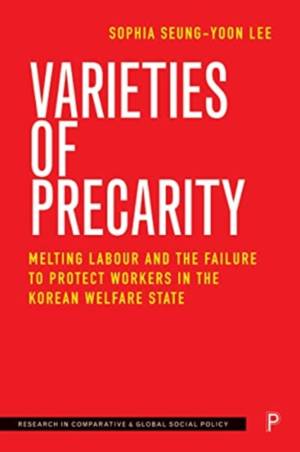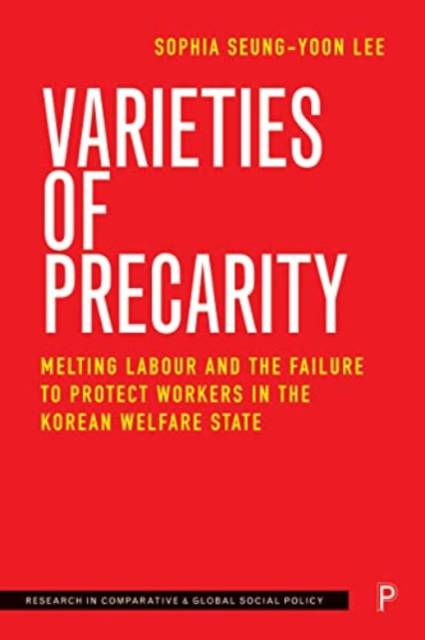
- Retrait gratuit dans votre magasin Club
- 7.000.000 titres dans notre catalogue
- Payer en toute sécurité
- Toujours un magasin près de chez vous
- Retrait gratuit dans votre magasin Club
- 7.000.000 titres dans notre catalogue
- Payer en toute sécurité
- Toujours un magasin près de chez vous
Varieties of Precarity
Melting Labour and the Failure to Protect Workers in the Korean Welfare State
Sophia Seung-Yoon LeeDescription
Despite recent achievements in the South Korean economy and development within welfare institutions, new forms of precarious work continue to prevail.
This book introduces the concept of 'melting labour', which refers to the blurring of boundaries between traditional forms of work and workplace and the dissolution of standard employment relationships. Presenting a theoretical framework at the intersection of 'melting labour' and institutional protection of workers, it addresses how and why the Korean welfare state has failed to protect precarious workers.
Based on rich, in-depth interviews with over 80 precarious workers in Korea, from subcontracted manufacturing workers to platform workers, it provides a real depiction of how workers lose control over their lives and experience precariousness in labour markets.
Spécifications
Parties prenantes
- Auteur(s) :
- Editeur:
Contenu
- Nombre de pages :
- 210
- Langue:
- Anglais
- Collection :
Caractéristiques
- EAN:
- 9781447369257
- Date de parution :
- 28-11-23
- Format:
- Livre relié
- Format numérique:
- Ongenaaid / garenloos gebonden
- Dimensions :
- 156 mm x 234 mm
- Poids :
- 471 g







